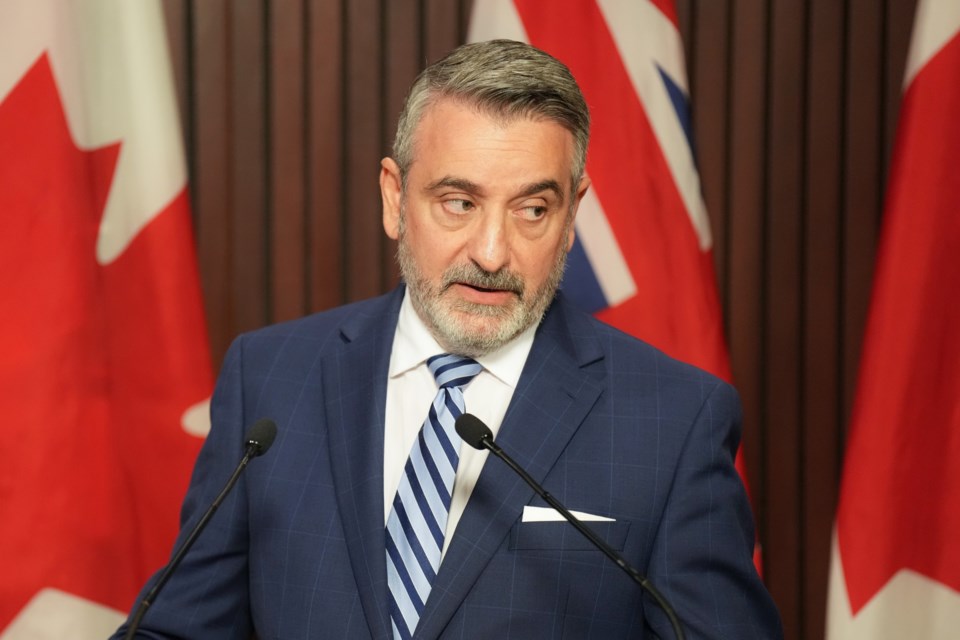Ontario municipalities will get nearly $5 billion over the next five years to help build critical infrastructure like roads, bridges and wastewater treatment plants that Ontario's housing minister said are key to Ontario's housing ambitions.
The latest round of funding from the Canada Community-Buliding Fund (CCBF) — using money collected from the gas tax — will see Ottawa send just over $900 million per year to the province. The previous deal, which ran from 2019 to 2024, had Ottawa sending just over $800 million per year.
"Over the next year, the focus is going to be on roads, bridges, and that type of infrastructure that really helps us unleash housing across the province of Ontario. That was something that Team Ontario was really focused on with the federal government," said Minister of Municipal Affairs and Housing Paul Calandra.
Ottawa gives the money to the Association of Municipalities of Ontario, which sends the money to cities and towns on a per-capita basis, except for the City of Toronto, which manages its share of the money and spends nearly all on transit.
Municipalities love the CCBF because it goes straight to city coffers on a regular schedule, allowing them to better plan for new and upgraded infrastructure. The Federation of Canadian Municipalities (FCM) has long argued for more money to flow through the program, especially because municipalities don't have access to other revenue sources like goods and services taxes, income taxes or capital gains taxes that cities in other countries rely on.
"We know that large-scale infrastructure projects can take years to plan and execute. Funding arrangements that reflect this reality through long-term, predictable funding help ensure that projects can be completed on time and on budget," the FCM wrote in a policy paper.
Wednesday's agreement is the latest deal struck between Calandra and Federal Housing Minister Sean Fraser after the two got into a pitched battle over affordable housing funding earlier this year.
In March, Fraser warned Calandra the province could forfeit $357 million of federal money if it didn't submit a plan showing how it would build tens of thousands of affordable housing units.
In 2018, the two sides signed a 10-year, $5.8-billion agreement that committed Ontario to building nearly 20,000 affordable homes. Fraser was worried the province hadn't made enough progress and wanted Calandra to pick up the pace.
Throughout the spat, Calandra said the federal government was being unreasonable and not considering progress made using money from other programs. He also said his focus was on repairing existing affordable units because Ontario had the oldest stock in the country.
Building new stock at the expense of existing units “would amount to gross negligence on our part," Calandra said.
In early May, Fraser declined to heed Calandra's pleas. The province wouldn't get the money. Instead, the feds would work directly with Ontario's 47 service managers, the institutions that actually build affordable units.
Later that month, Calandra and Fraser pulled back from the brink and inked a deal after Calandra resubmitted a plan that put Ontario on a path to building the 20,000 units by 2028.




